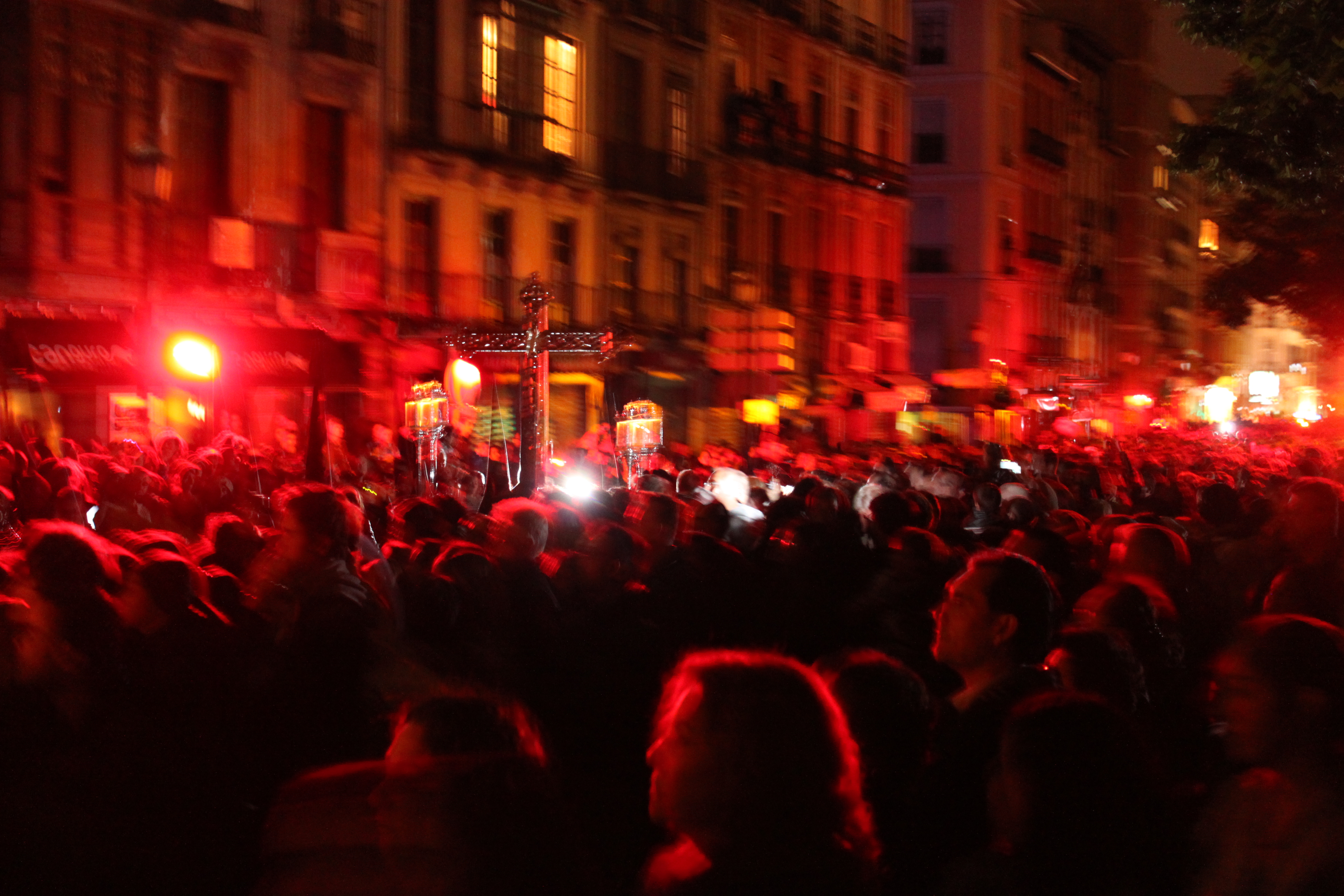Tips and considerations for Holy Week

Official route
The official route is the path followed by the Holy Week processions, with a specific schedule for passing by the Tribuna Oficial (the official stand for dignitaries) and entering the Cathedral.
Itinerary of the official route
Calle Ángel Ganivet, Puerta Real de España, Recogidas, Alhóndiga, Jaúdenes, Marqués de Gerona, Plaza de las Pasiegas, Holy Cathedral Church, leavin from the Gate of El Perdón.
Seats on the brotherhoods'' stands can be booked through the Federation of Brotherhoods and Confraternities of Granada.
Seats cannot be hired once Holy Week has started.
Locations of seats:
Ganivet
Plaza Pasiegas
Puerta Real- opposite CajaGranada
Alhóndiga
Campo Verde
Pescadería
Seats are available on calle Alhóndiga for occasional spectators. They are not booked. You simply take a seat and pay the collection agent. Price: €12
The processions are in the evening, except for the La Soledad Brotherhood on Good Friday and all the processions held on Easter Sunday. Consult the Holy Week section for a day-by-day schedule of the times at which each Stations of the Cross procession enters the Official Route.
Bystanders line the streets to watch the rest of each brotherhood''s itineraries as the floats leave their churches and return to them. The Holy Week, day by day section and the official guide that you can pick up at our Tourist Office indicate the best places.
Leaving and returning to the church
Normally, each procession starts and ends in the same church.
The moments when the floats depart and return to the churches are charged with great emotion and require technical skill, due to the narrowness of the entrance to the churches. The temples are also the headquarters of each brotherhood.
The most devoted members of the brotherhoods are usually in attendance every time the scheduled processions leave or enter their church.
Arrive early to get a good spot, because the streets will be jam-packed.
Traffic
Some processions take place in the morning but most are in the afternoon. Streets are closed to traffic in the city centre at around 16:00, mainly Reyes Católicos and Gran Vía, and in the Realejo and Albaicín neighbourhoods. (Check with the Granada City Council Mobility Department to find out where traffic is closed).
Streets are also closed to traffic intermittently, depending on the itinerary of the processions arriving from other neighbourhoods in the city.
Traffic affected:
- Public transport Diversion via Camino de Ronda and according to the orders of the Local Police
- Tourist train Afternoon service is suspended (from 15:00 onward)
- Airport bus The Conference Centre (Palacio de Congresos) stop still functions
Some streets are closed in the afternoon. Streets are closed to traffic one hour before the first procession is scheduled to pass through them. The time varies, but according to some police sources, the processions start at around 17:00. No streets are closed if it rains.
Transport affected:
- Urban buses: Lines passing by Gran Vía, will be diverted by Camino de Ronda. Albaicín lines will be diverted by Triunfo, unless parades will coming from Constitución. Alhambra lines will bbe affected by parades in Realejo and San Matías, and will be diverted with no specific alternative itinerary, only local police instructions.
- Tourist train: The train only runs until 15:00 The first one departs at 09:00. On Resurrection Sunday 16.00-18.45.
- Airport bus: Normally an alternative route is put in place at 16:00: the bus leaves the Palacio de Congresos stop at the usual time and takes a diversion along Camino de Ronda. From there, it goes up Severo Ochoa before returning to the Triunfo stop, where it continues along the normal route. In other words, the bus stops closest to the city centre in the afternoons are: Palacio de Congresos and Triunfo. We recomemnd to get on PALACIO DE CONGRESOS
The processions are always held in the afternoon (except on Resurrection Sunday, when they are in the morning and the roads are closed in the morning)

